Tag: political science
-
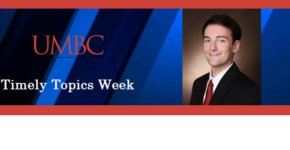
F. Chris Curran, University of Maryland Baltimore County – School Resource Officers and Discipline
More and more schools have law enforcement in the hallways. F. Chris Curran, assistant professor of public policy at the University of Maryland, Baltimore County, discusses how this affects schools during normal times. I am an Assistant Professor of Public Policy at the University of Maryland, Baltimore County’s (UMBC) School of Public Policy. I conduct…
-
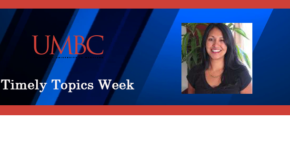
Amy Bhatt, University of Maryland Baltimore County – Highly Skilled Immigrant Family Separation
The immigration debate goes beyond the headlines. Amy Bhatt, associate professor of gender & women’s studies at the University of Maryland, Baltimore County, explores another side of the story. Dr. Amy Bhatt is Associate Professor of Gender and Women’s Studies, Affiliate Assistant Professor in the Language, Literacy and Culture Program and the Asian Studies Program…
-
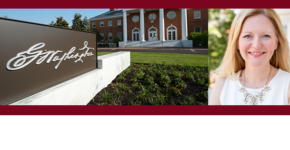
Melissa Deckman, Washington College – The Evolving Role of Women in Politics
On Washington College Week: Women’s political participation is on the rise. Melissa Deckman, professor of political science at Washington College, discusses how younger generations are changing gender norms in politics. Professor Deckman’s areas of specialty include religion and politics, women and politics, and state and local politics. Her latest book is Tea Party Women: Mama…
-
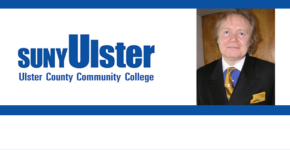
Ray Raymond, SUNY Ulster – Security
Our security measures may lead to insecurity for others. Ray Raymond, professor of government and history at the State University of New York Ulster, examines how protectionism at home may lead to bigger troubles abroad. Dr. Ray Raymond is a former British diplomat who held a Post-Doctoral Fellowship at Yale University in American History. He…
-
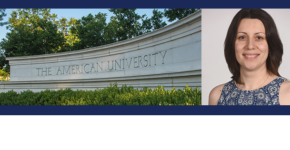
Anna Amirkhanyan, American University – We Have Protested, Now What?
On American University Week: Protesting is a way to get your voice heard. Anna Amirkhanyan, associate professor in the department of public administration and policy at American University, discusses what to do after the protest ends. Professor Amirkhanyan’s research focuses on public and nonprofit management, organizational performance, public-private differences, and citizen participation. Her articles have…
-
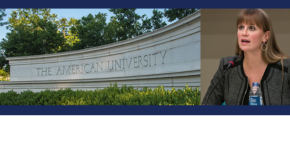
Tricia Bacon, American University – Allies of the Islamic State
On American University Week: Where does the fight against ISIS stand today? Tricia Bacon, assistant professor at the School of Public Affairs at American University, examines how terrorist groups with allies can come back from the dead. Tricia Bacon, PhD, is an Assistant Professor at American University’s School of Public Affairs. She is the author…
-
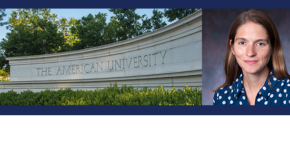
Sarah Snyder, American University – Human Rights and U.S. Foreign Policy
On American University Week: Have human rights helped shape U.S. foreign policy in the past? Sarah Snyder, associate professor in the school of international service at American University, looks into this question. Sarah B. Snyder is a historian of U.S. foreign relations who specializes in the history of the Cold War, human rights activism, and…
-
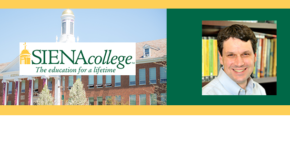
Daniel Lewis, Siena College – Public Attitudes Towards Transgender Rights
On Siena College Week: Could unfamiliarity with transgender people be driving negative attitudes in the U.S.? Daniel Lewis, associate professor of political science at Siena College, examines this question. Daniel C. Lewis earned his Ph.D. from Michigan State University in 2008 and previously directed the University of New Orleans’ graduate programs in political science. His…
-
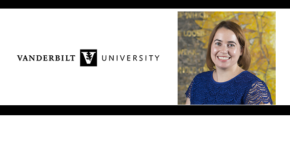
Lisa Fazio, Vanderbilt University – Why We Stink at Fact-Checking
Got your facts straight? Lisa Fazio, assistant professor of psychology and human development at Vanderbilt University, discusses how our fact-checking may not be as good as we think. I study how people learn new information, both true and false, and how to correct errors in people’s knowledge. This includes how to mitigate the effects of…
-

Ray Raymond, SUNY Ulster – Avoiding Intelligence Blind Spots
There has been a lot of chaos in the U.S. government under the current administration. Ray Raymond, professor of government and history at the State University of New York Ulster, discusses how the country can avoid pitfalls in future intelligence decisions. Dr. Ray Raymond is a former British diplomat who held a Post-Doctoral Fellowship at…
